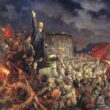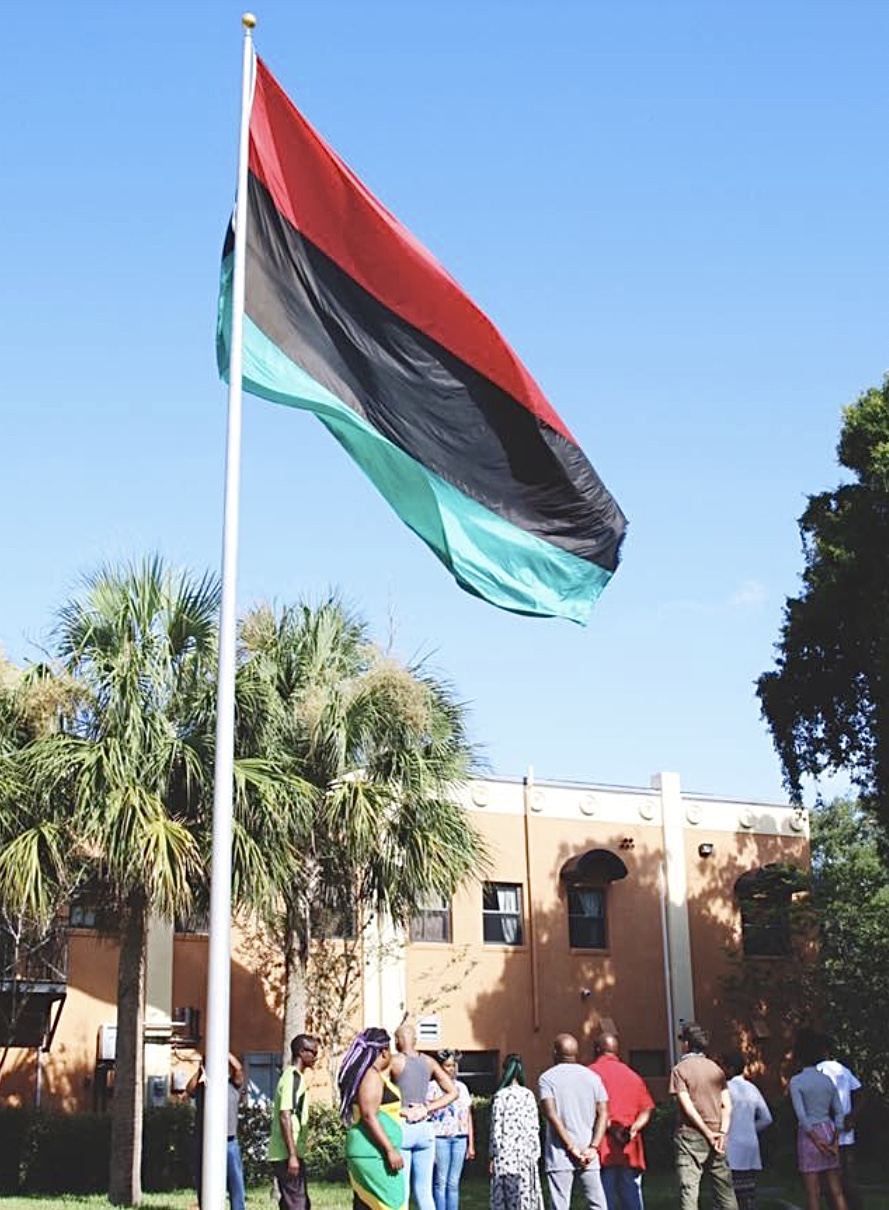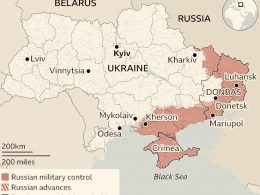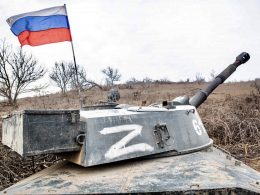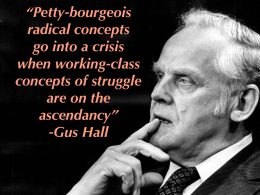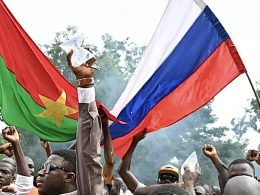If you’re concerned about the attempt by the DOJ to prosecute the Uhuru organization for its anti-imperialist work, then you should take example from Uhuru’s practice. The African People’s Socialist Party has been chosen as the first target in the present stage of new cold war repression because it represents a type of threat which the most prominent, widely platformed left orgs in this country don’t. It advances a version of anti-colonial Marxism that doesn’t share the counter-productive patterns of thinking which many self-described “anti-colonial Marxists” in this country engage in; it’s an org that decries settler-colonialism in the modern United States, without coming to idealist conclusions that undermine the cause.
Uhuru’s practice lacks such ultra-left qualities not just because it supports Russia’s military operation against Ukrainian fascism and U.S. hegemony; or because it’s allied with Caleb Maupin’s Center for Political Innovation instead of disregarding CPI’s contributions to the anti-imperialist struggle; but because it genuinely operates with the mentality that we need to get out of the movement and into the masses. It’s because of that latter trait that Uhuru has had the wisdom to back Russia, and to work with orgs like CPI; as such practices can only be undertaken by an org which understands the need to expand the struggle beyond the “leftist” niche. And it’s because Uhuru is ideologically equipped to build such a relationship with the broader masses; in particular the African masses; that it’s been selected for this persecution. The org’s real crime has been to succeed at organizing Black workers, which threatens the efforts of the Democratic Party to divert Black radicalism into reformism.
One reason why most of the socialist orgs in this country have disavowed Russia’s action, and rejected working with pro-Russian orgs like CPI or PCUSA, is because those actions would alienate a particular ideological element. That being the radical liberal element; the part of the left that’s guaranteed to denounce all the most transgressive anti-imperialist actions, individuals, and groups. The members of this element perpetuate such divisions within the anti-NATO movement due to their belief that they must combat the “bad” kinds of anti-imperialists, or else not be principled on the domestic liberation struggles.
It’s because of this reasoning that so many of those who share Uhuru’s analysis on settler-colonialism see orgs like CPI as untouchable, or are suspicious of all pro-Russian sentiments like how cold war liberals are. This mentality encourages somebody to fight a perpetual battle against the anti-imperialists not judged to be pure, rather than to prioritize the fight against U.S. hegemony.
This is a small way of thinking, whereas the ideological tendency which Chairman Omali Yeshitela represents is big and comprehensive in its analysis. Thereby, it’s open to ideas and alliances that its counterparts in the ultra-left spaces reject. It’s not exactly because of those ideas and alliances Uhuru has embraced, though, that it’s being persecuted; as the org’s commentary on the indictments has clarified, the true reason for the repression is that Yeshitela’s project represents the most direct threat towards the colonial mode of production in today’s United States:
What I’ve been trying to expose for the longest period of time is the centrality of the African Revolution and the African People’s Socialist Party as the vehicle to make the African Revolution. We must recognize the centrality of African people and African internationalism as a philosophical guide for where it is that we want to go…This will help us understand that this is an entirely different place from 1969 with the Black Panther Party. This is entirely different from just trying to crush dissent in the United States. This is different from anti-war protests being crushed, or some assumption that the reason they attacked us is because of our understanding on Russia, the Ukraine war, something to that effect. It is much different. It’s much bigger because there are all kinds of people in the United States who are opposed to this war and some of them are in support of Russia, but the African People’s Socialist Party bore the brunt of this assault and I just tried to lay out what I believe is the political historical basis for that. This should inform how we move forward.
The reason why it’s a Black revolutionary org that’s been the first to experience raids and indictments over bogus “Russian interference” charges; rather than any of the other pro-Russian orgs; is because by being Pan-Africanist in such an emphatic way, this org has embraced a particular role in confronting the foundational aspects of global capitalism. Also says the org’s analysis:
For the first time in history, there is a real possibility for genuine international class struggle, especially inside the United States. APSC lays the basis for how white people can be engaged in class struggle. Usually when people talk about class struggle, they are referring to the contest that is being made by white people for greater access to the colonial booty from the looting of the colonized. Even the struggle against what they call “fascism” is about a debate between different sectors of the white population, about the inability to access and control the colonial resources. That’s a struggle among the colonizers themselves. What the Party has done in creating the solidarity movement is give the colonizers an opportunity to break from colonialism–just like the attempt by the Russian Revolution in 1917.
By forsaking the ultra-left mode of practice, Uhuru is able to advance the anti-colonial struggle in a way that truly represents a danger towards our colonial institutions. It’s putting forth an anti-colonial agenda which can actually be delivered on; which doesn’t defeat itself with idealistic deviations. That’s the incredible thing about the institution Yeshitela has built: it’s able to be so forthright about its opposition towards the colonial structures that perpetuate the deepest of our society’s contradictions, while acting with a pragmatism and rationality that many of those who recognize these contradictions don’t act with.
When the Uhuru organizers who’ve received Yeshitela’s ideological training see an anti-NATO org that displays the U.S. flag, they don’t declare that org their enemy; they ask whether this org is willing to assist Uhuru in its struggle. That’s the winning strategy, as it’s based within the same pro-coalition mentality which made the Panthers able to become such a serious threat; like the Panthers with their Rainbow Coalition, Uhuru is connecting with any allies they can find, and thereby increasing its potential to generate momentum.
The state has made a Black org into its first target for bogus, cold war-related charges not just because it’s easiest to begin a crackdown by starting with attacks on people who are especially marginalized; but because Uhuru’s Pan-African cause poses a certain kind of threat towards capitalist interests. Should Pan-Africanism gain too many more victories, the essential economic basis for global monopoly capitalism will be lost. The exploiters need to have a minimum amount of access to neo-colonies, or their system will become untenable. And because they can’t undo the progress that Africa’s recently victorious anti-colonial leaders have made, they’re trying to preemptively block the equivalents of those revolutionaries in the imperial center from making progress.
Uhuru needs to be crushed for the imperial state to be able to enact its next austerity policies without encountering successful popular resistance. The specific anti-colonial role that a force like Uhuru plays represents a key part of such a mass movement; Uhuru could prove instrumental in the task of mobilizing both colonized proletarians, and the workers who Yeshitela non-moralistically calls settlers. If we save Uhuru, we’ll get the revolutionary struggle in the strategic place it needs to be in during our escalating class conflict.
————————————————————————
If you appreciate my work, I hope you become a one-time or regular donor to my Patreon account. Like most of us, I’m feeling the economic pressures amid late-stage capitalism, and I need money to keep fighting for a new system that works for all of us. Go to my Patreon here.
To keep this platform effective amid the censorship against dissenting voices, join my Telegram channel.
